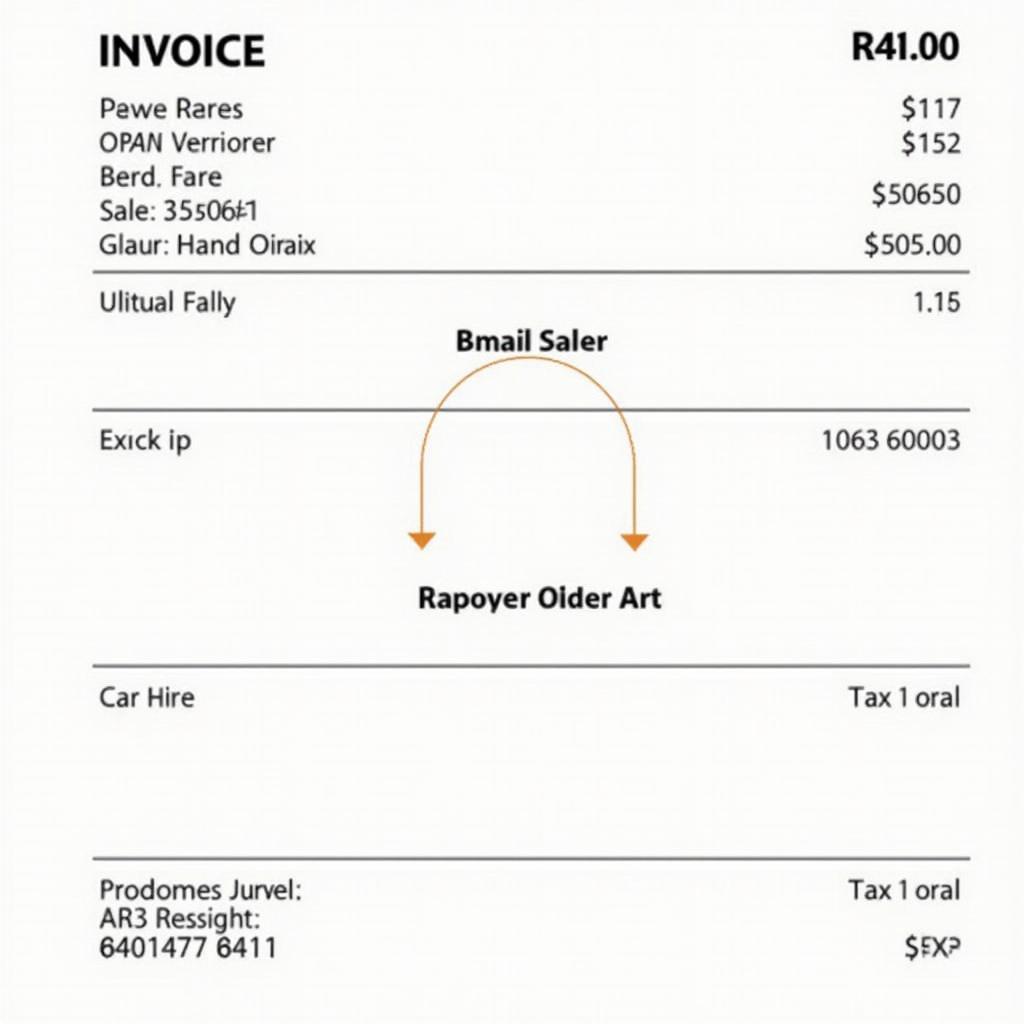Reverse Service Tax On Car Hire Charges is a critical aspect of taxation that impacts both businesses offering car rental services and the customers who utilize them. This article dives deep into the intricacies of this tax, exploring its implications, calculations, and practical applications.
What is Reverse Service Tax on Car Hire Charges?
Reverse service tax shifts the tax liability from the service provider to the recipient, in this case, the entity hiring the car. This mechanism is typically employed in specific sectors, including car rentals, to streamline tax collection and prevent tax evasion. It ensures that the tax burden falls on the party ultimately benefiting from the service.
Who Pays Reverse Service Tax on Car Hire Charges?
The responsibility for paying reverse service tax on car hire charges lies with the person or organization hiring the vehicle. This contrasts with the traditional model where the service provider (the car rental company) would collect and remit the tax. The shift in responsibility simplifies tax administration and enhances compliance.
How is Reverse Service Tax on Car Hire Charges Calculated?
The calculation of reverse service tax involves applying a predetermined percentage to the total car hire charges. This percentage varies depending on the jurisdiction and the specific regulations in place. Understanding the applicable rate is crucial for accurate tax calculation and compliance.
Factors Affecting Reverse Service Tax Calculation
Several factors can influence the final reverse service tax amount. These include the duration of the car hire, any additional services included (such as insurance or chauffeur services), and any applicable exemptions or discounts.
Implications of Reverse Service Tax for Businesses
For businesses involved in car rentals, the implementation of reverse service tax simplifies their tax obligations. They no longer need to collect and remit the tax, reducing their administrative burden. However, they are still responsible for maintaining accurate records of car hire transactions and providing necessary documentation to the hiring party.
Implications of Reverse Service Tax for Customers
Customers hiring cars need to be aware of the reverse service tax implications. They are responsible for calculating and remitting the tax, which adds to the overall cost of car hire. Understanding the tax calculation process and keeping accurate records is essential for compliance.
Managing Reverse Service Tax as a Customer
Effective management of reverse service tax involves careful budgeting and record-keeping. Customers should factor the tax into their overall car hire expenses and maintain detailed invoices for tax reporting purposes.
Benefits of Reverse Service Tax in the Car Hire Industry
Reverse service tax offers several advantages within the car hire sector. It streamlines tax collection, reduces the administrative burden on car rental companies, and promotes transparency in transactions. This system also helps prevent tax evasion by placing the responsibility on the end-user.
Common Challenges and Solutions Related to Reverse Service Tax
Despite its benefits, reverse service tax can present challenges, particularly for customers unfamiliar with the process. Difficulties in understanding the calculation or maintaining accurate records can lead to compliance issues.
Navigating Reverse Service Tax Challenges
Seeking professional advice or utilizing online resources can assist customers in navigating the complexities of reverse service tax. Car rental companies can also play a role by providing clear and concise information about the tax and its implications.
“Understanding the nuances of reverse service tax is essential for both businesses and customers in the car hire industry. Transparency and accurate record-keeping are key to seamless compliance,” says John Miller, Senior Tax Consultant at Automotive Tax Solutions.
“For businesses, adopting efficient accounting practices simplifies the process and minimizes potential complications,” adds Maria Garcia, Financial Analyst at Car Rental Insights.
Conclusion
Reverse service tax on car hire charges is a mechanism designed to simplify tax collection and enhance compliance. While it shifts the responsibility to the customer, understanding its implications and implementing effective management strategies can ensure a smooth and transparent process. This ultimately benefits both businesses and customers in the car hire industry.
FAQ
- What is reverse service tax?
- Who is responsible for paying reverse service tax on car hire charges?
- How is reverse service tax calculated?
- What are the implications of reverse service tax for businesses?
- What are the implications of reverse service tax for customers?
- What are the benefits of reverse service tax in the car hire industry?
- What are some common challenges related to reverse service tax and how can they be addressed?
For further assistance, please contact us via WhatsApp: +1(641)206-8880, or Email: [email protected]. We have a 24/7 customer support team available to help you.


